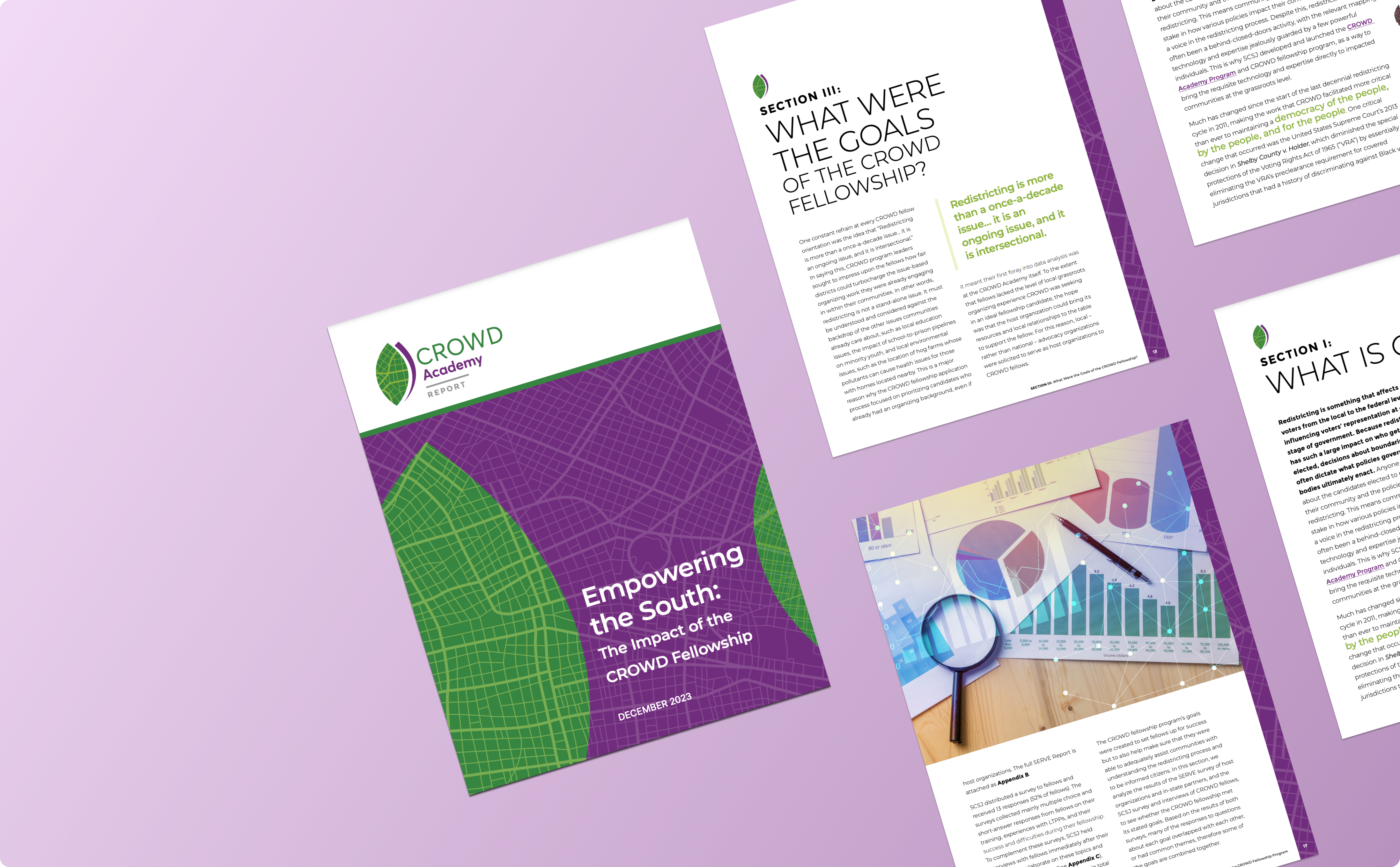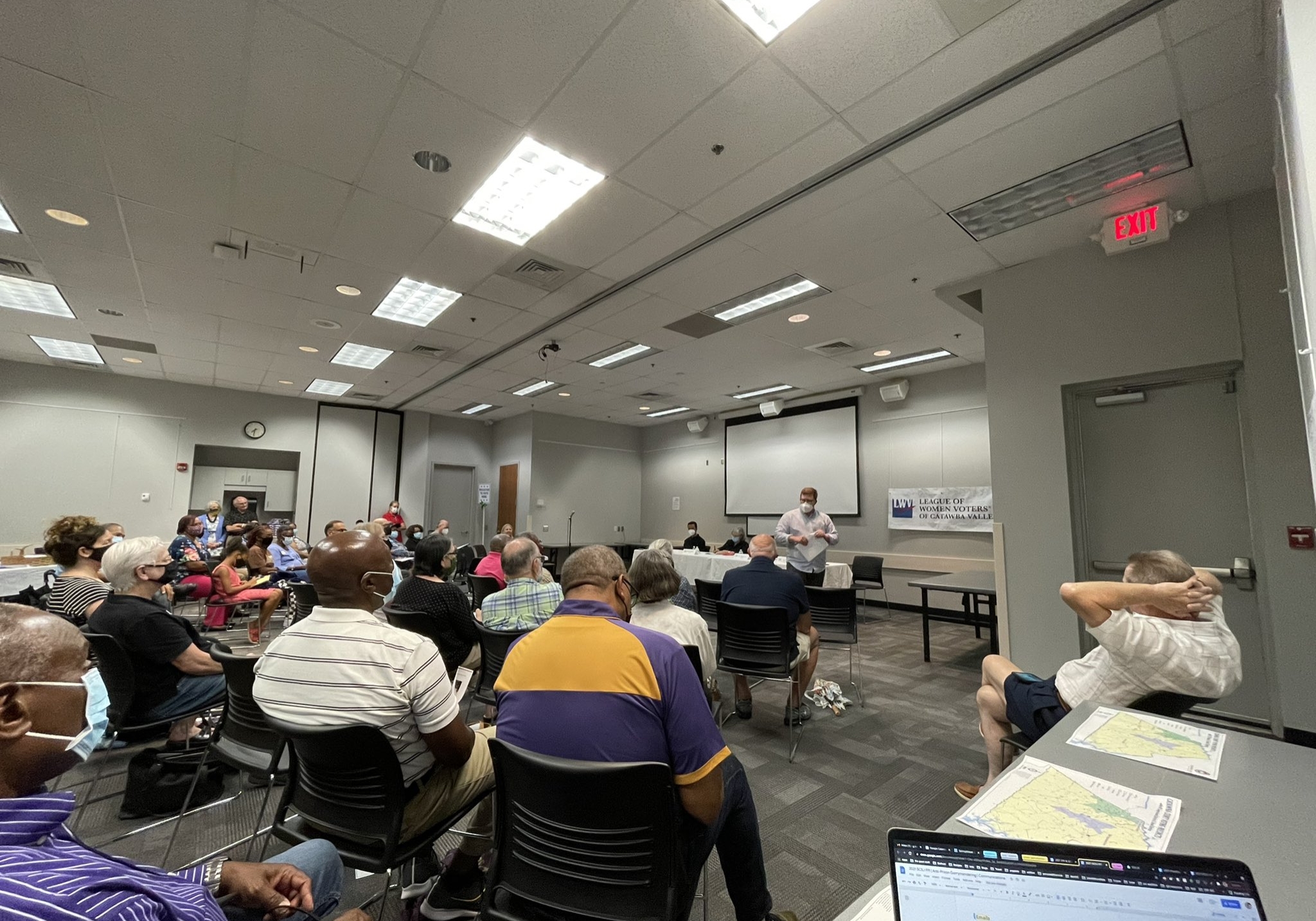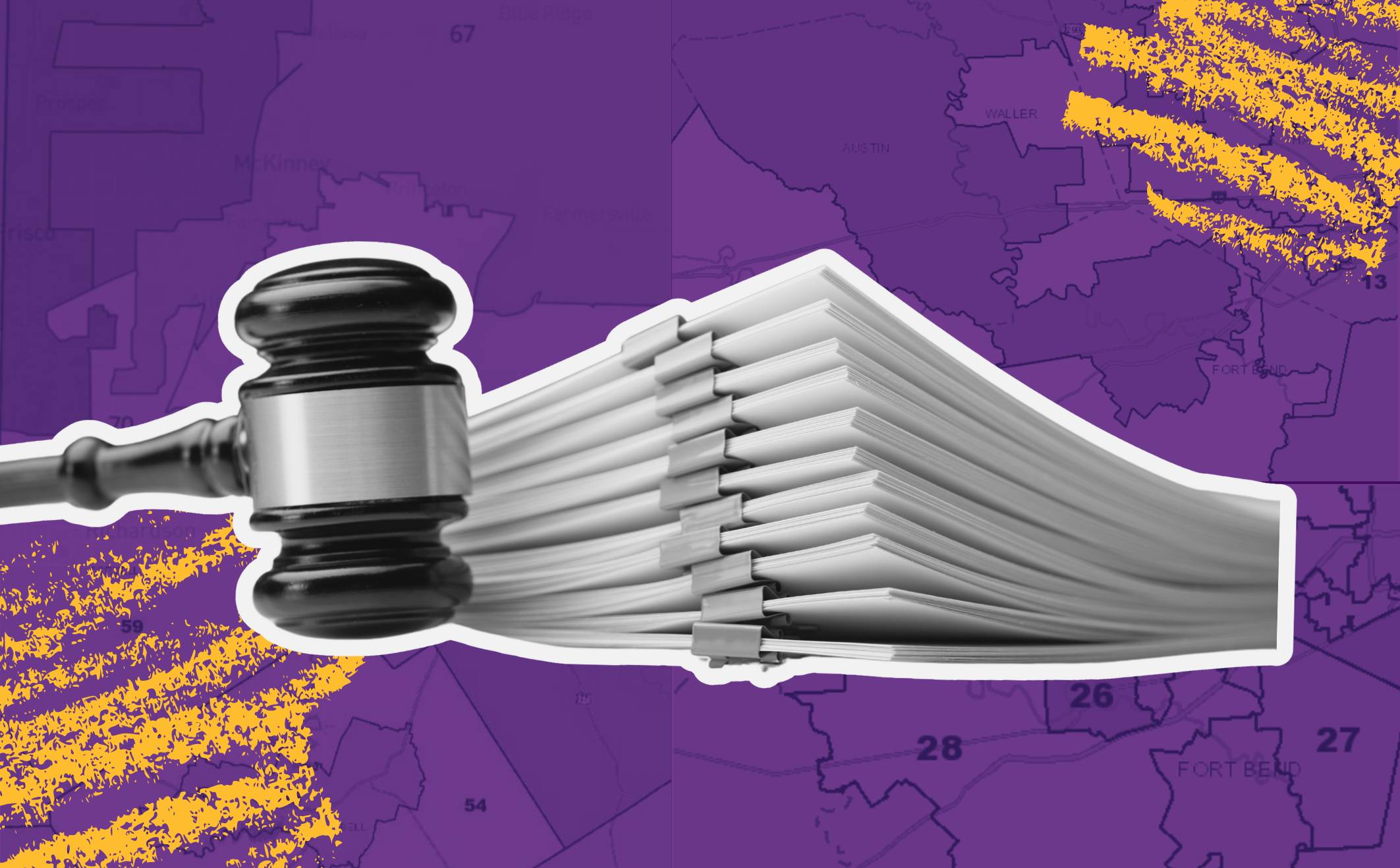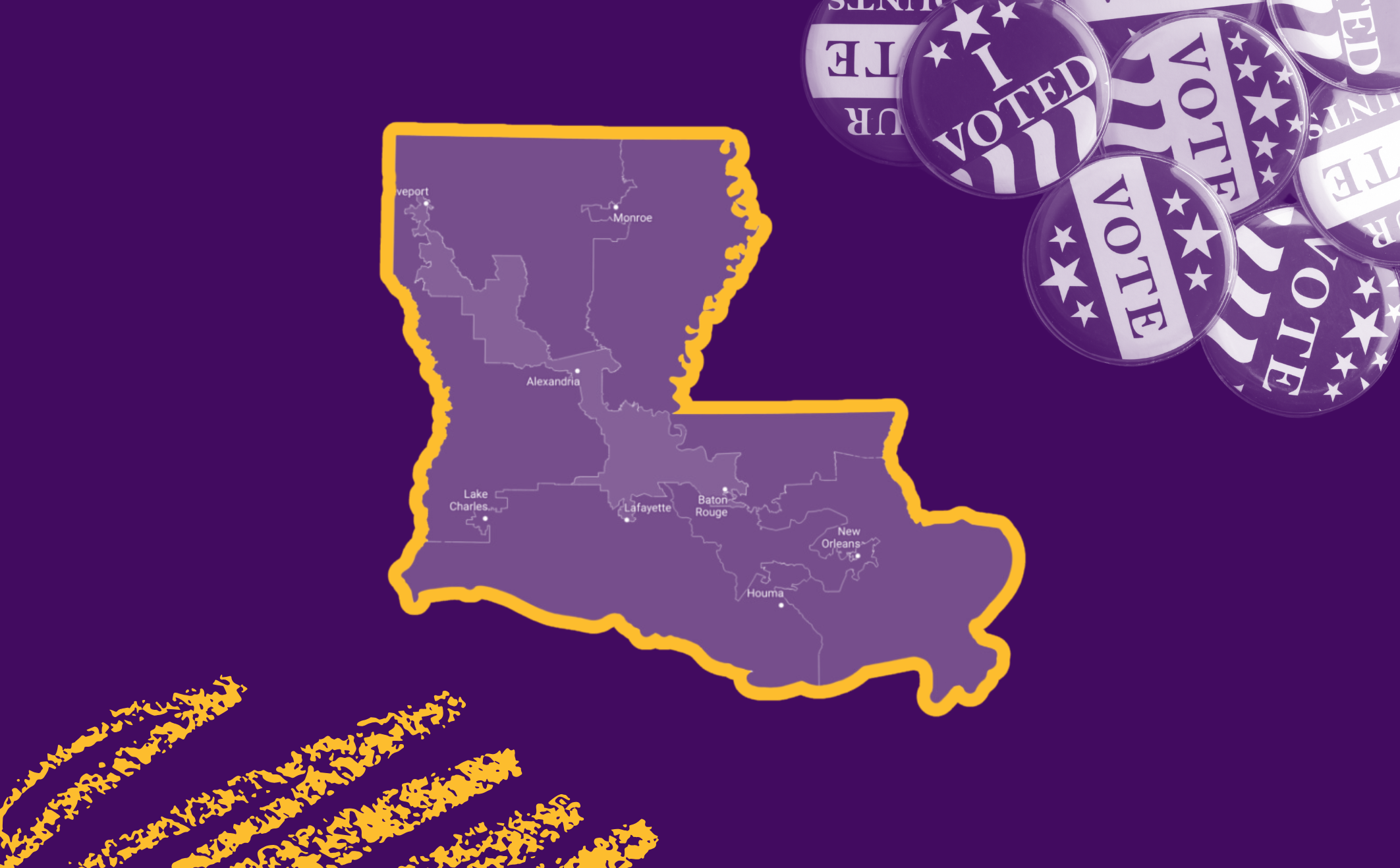VOTING RIGHTS
How We Fight for Fair Districts
In our work to ensure fair redistricting, SCSJ continues to fight for racially equitable redistricting maps at all levels of government through litigation, community advocacy, and education.

"Redistricting happens every 10 years and determines how communities are created, what districts we live in, who represents us, and how those representatives will allocate resources for our communities."
What is Redistricting?
Redistricting is the process in which voting maps are re-drawn, often once every decade following the release of a U.S. Census and to account for population changes. When a state redistricts, officials decide which communities are in the same district and share representation in federal and state elections. These maps directly influence how resources for roads, schools, and healthcare are distributed to communities for the next ten years.
What is Gerrymandering?
Gerrymandering occurs when state legislatures purposefully draw district boundaries to give an advantage to a particular group or party — or put an opposing party or group at a disadvantage.
Partisan gerrymandering is used to discriminate against a political party. This prevents opposition parties from gaining enough voters to represent a viable alternative point of view, and leads to the formation of political monopolies. Even if a district’s shape does not look strange, its population can still be engineered to elect certain politicians.
Racial gerrymandering is the intentional segregation of voters based on race. States have traditionally used “cracking” to weaken the political power of communities of color: breaking up communities of color into multiple districts, ensuring that there are not enough voters of color in any one district to elect their candidate of choice. As communities of color grow, states have also used “packing:” concentrating voters of color into just a few districts, thereby weakening their political power elsewhere. With fewer opportunities to elect candidates of their choice, communities of color lack adequate representation in local, state, and federal government.
Prison gerrymandering is when incarcerated people are counted by the U.S. Census Bureau in the place where they are detained instead of their home communities. As a result, this practice of “prison gerrymandering” transfers political power from densely-populated urban areas to more sparsely populated rural hubs and contributes to the systemic under-representation of disproportionately-incarcerated Black and Latinx communities. Prison gerrymandering receives the most attention at the state and national levels, but is also a local issue that can be prevented by counties, cities, towns, and school district officials.
Redistricting Initiatives
CROWD Academies
The 2021 redistricting cycle kicked off in the summer when 2020 Census results were delivered to the states.
Together we are mobilizing greater participation in the redistricting process to pressure state and local electees to create a transparent process, draw fair districts that protect our communities of interest and establish a clear record of community demands, so that we can challenge any attempts to rig the process.


#MapOurFuture Campaign
Since June 30, 2022, when the U.S. Supreme Court granted review of the North Carolina redistricting case Moore v. Harper, Common Cause NC and Southern Coalition for Social Justice revived an unprecedented campaign to tell our story about our state’s fight for responsive maps and voting access and the impact Moore could have on future elections in North Carolina and across the nation.
Redistricting & Fair Districts News
Texas Advocates Shift Focus After Racial Gerrymandering Case Dismissed
EL PASO, Texas (March 25, 2025) — A coalition of Texas voting and civil rights advocates announced this week they will not continue to pursue litigation related to the discriminatory gerrymandering of Congressional and state legislative districts in the state. “We made a difficult decision to forgo further litigation, but this is not a retreat…
Read More Texas Advocates Shift Focus After Racial Gerrymandering Case Dismissed
Group of Nation’s Civil Rights Attorneys Urges SCOTUS to Keep Voting Rights Act Intact
Washington, D.C. (March 21, 2025) — On the heels of the 60th Anniversary of Bloody Sunday, the United States Supreme Court will hear Louisiana v. Callais on Monday, March 24, to decide if a Louisiana congressional map enacted in 2024 is unconstitutional on racial gerrymandering grounds. This 2024 map was enacted after lower federal courts…
Read More Group of Nation’s Civil Rights Attorneys Urges SCOTUS to Keep Voting Rights Act Intact
